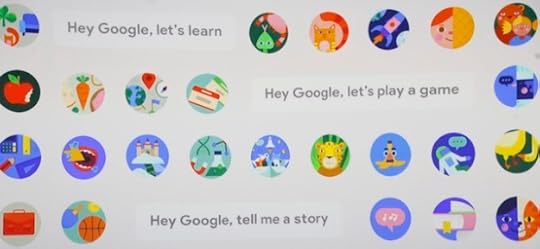Nicholas Carr's Blog, page 10
October 7, 2017
“How Smartphones Hijack Our Minds”: sources
I draw on several studies in my Wall Street Journal essay “How Smartphones Hijack Our Minds.” Here are citations and links for anyone who would like to delve more deeply into the subject.
Three articles written or cowritten by Adrian Ward, formerly at the University of Colorado at Boulder and now at the University of Texas at Austin, were particularly valuable:
Ward, Duke, Gneezy, Bos, “Brain Drain: The Mere Presence of One’s Own Smartphone Reduces Available Cognitive Capacity,” Journal of th...
October 6, 2017
The amazing, mind-eating smartphone
In “How Smartphones Hijack Our Minds,” an essay in the Weekend Review section of the Wall Street Journal, I examine recent research into the ways smartphones influence our cognition and perception — even when we’re not using the devices.
Here’s a taste:
Scientists have long known that the brain is a monitoring system as well as a thinking system. Its attention is drawn toward any object in the environment that is new, intriguing or otherwise striking — that has, in the psychological jargon,...
October 5, 2017
Mattel and Google: a double standard for AI toys?
Mattel yesterday pulled the plug on Aristotle, a planned smart-speaker-cum-baby-monitor developed by the company’s Nabi unit. The product had generated controversy since it was announced in January, with lawmakers, pediatricians, and child advocates raising concerns about how the device would collect data on and influence the behavior of children. The Washington Post summed up the concerns:
For one, the existence of a home hub for kids raised questions about data privacy for a vulnerable pop...
September 23, 2017
The word is flat
Declaims Crispin Sartwell in a curious column in today’s Wall Street Journal:
Leaving aside quality, people have never written or read more, or even nearly as much, as they do now. This is the golden age of the written word.
Leaving aside quality, every age is a golden age.
September 13, 2017
Facebook Rules
When television emerged as a fledgling medium in the middle years of the last century, it already had, in the form of the Federal Communications Commission, the Communications Act of 1934, and various other laws and precedents, a framework for regulating its content. The formal restrictions on the broadcasting of obscene, indecent, profane, prurient, and violent material, combined with the sensitivities of mainstream advertisers, defined the boundaries of Prime Time television through the fi...
September 11, 2017
The internet as an innocent fraud
The paperback edition of Utopia Is Creepy is out today, September 12, from W. W. Norton & Company. Collecting seventy-nine of the best posts from Rough Type as well as sixteen essays and reviews I published between 2008 and 2016, the book, says Time, “punches a hole in Silicon Valley cultural hubris.”
Here’s an excerpt from the introduction:
“The most unfree souls go west, and shout of freedom.”
–D. H. Lawrence, Studies in Classic American LiteratureThe greatest of America’s homegrown relig...
The internet is an innocent fraud
The paperback edition of Utopia Is Creepy is out today, September 12, from W. W. Norton & Company. Collecting seventy-nine of the best posts from Rough Type as well as sixteen essays and reviews I published between 2008 and 2016, the book, says Time, “punches a hole in Silicon Valley cultural hubris.”
Here’s an excerpt from the introduction:
“The most unfree souls go west, and shout of freedom.”
–D. H. Lawrence, Studies in Classic American LiteratureThe greatest of America’s homegrown relig...
September 10, 2017
Oracles of the countertop
I have an article in today’s New York Times about how domestic robots, which we always expected would resemble ourselves, have instead arrived in the form of chatbot-powered smart speakers. The shift from the Jetsons’ embodied Rosie to Amazon’s disembodied Alexa says something important about our times, I suggest. The piece begins:
From the moment we humans first imagined having mechanical servants at our beck and call, we’ve assumed they would be constructed in our own image. Outfitted wit...
September 9, 2017
Problem solved
I came across this headline today in Newsweek:
It’s such a relief to get some good news for a change.
September 8, 2017
Question marks of the mysterians
By leaps, steps, and stumbles, science progresses. Its seemingly inexorable advance promotes a sense that everything can be known and will be known. Through observation and experiment, and lots of hard thinking, we will come to explain even the murkiest and most complicated of nature’s secrets: consciousness, dark matter, time, the origin and fate of the universe.
But what if our faith in nature’s knowability is just an illusion, a trick of the overconfident human mind? That’s the working as...









